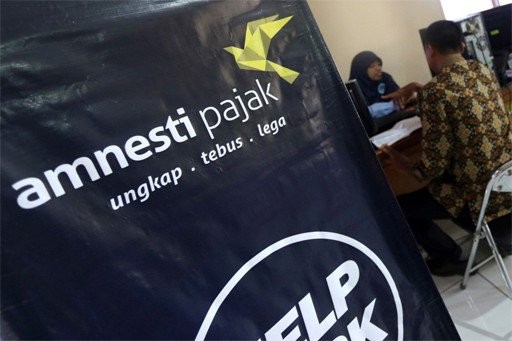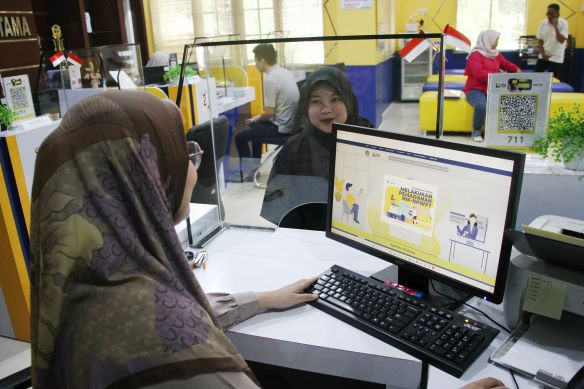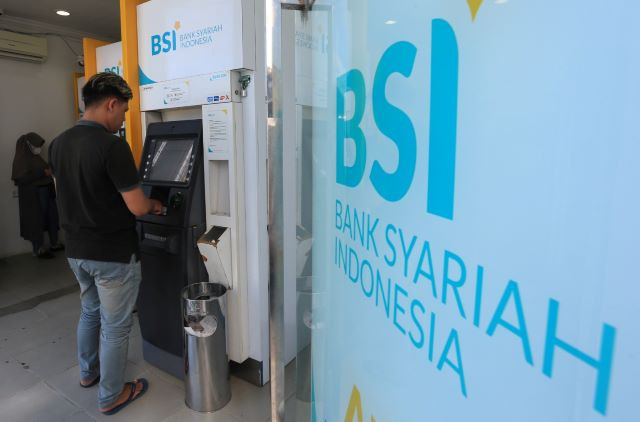The tax amnesty is a rational decision
Change Size
 A tax officer talks to a taxpayer at the Blitar Tax Office in East Java. (Antara Photo/Irfan Anshori)
A tax officer talks to a taxpayer at the Blitar Tax Office in East Java. (Antara Photo/Irfan Anshori)
T
he tax amnesty has passed its critical period. At the end of its first phase on Sept. 30, the program has put into the government’s pocket about Rp 97.2 trillion in fresh money and seen assets worth Rp 3.620 trillion declared.
About Rp 137 trillion of those assets were poured into Indonesia’s economy through asset repatriation. It is hailed as one of the most successful tax amnesty programs in the world.
As a result, macroeconomic indicators show positive movement. Foreign exchange reserves reached US$113.5 billion, and the rupiah has achieved a stronger exchange rate. At the same time, the stock market index is soaring and has broken the record in terms of trading frequency.
Looking back at the early days of its imposition and taking into account the complexity of interests involved, this achievement is remarkable.
Political, legal and social pressure on the tax amnesty is enormous, and it is consuming huge administrative resources nationwide.
More importantly, the tax amnesty is a live contest of rationality in choosing what is better for Indonesia, pitting the logical decision to follow the system against the alternative option to obstruct the system.
Statistic shows that Indonesian tax compliance is still below average and far from its potential rate. The tax amnesty aims to put on the table again the rationality of paying taxes by forgiving past violations and starting a new period of a fair tax system.
For the time being, the option of following the tax system has gained significant support, and this situation must be retained and promoted consistently.
Maintaining this sense of rationality, in my opinion, is of utmost importance not only during the tax amnesty period but also afterward.
Rationality is a big word in economic science. It is used constantly within neoclassical economics to explain how an individual reacts to a given choice, always assuming the individual will maximize his or her benefits — the utility theory. To act rationally, the individual must have all the information he or she needs to pick the best option. This is an ideal assumption that does not describe a real-world setting.
Even if the individual had full information at hand, there would be time and resource constraints to determining the best option; thus, the individual often acts as a utility satisfier rather than utility optimizer (bounded rationality).
More recently, behavioral economists have offered a new concept of physiological drivers of behavior to replace the terms of rational behavior; highlighting that the central issue is the act of decision-making itself rather than focusing on the process of decision-making within the individual.
There are at least two important discussions in this area that are the two systems of thinking and common heuristics (thinking shortcuts) and common decision traps (cognitive biases and group biases).
Nobel Memorial Prize winner Daniel Kahneman in his book Thinking, Fast and Slow provides two modes of decision-making; a fast one that relies heavily on intuition and emotions, and a slow one that relies much on logic and deliberation.
He also offers a so-called “prospect theory”, according to which the individual makes decisions based on potential value rather than real outcome. To assess the positive or negative potential value, the individual relies heavily on heuristics, which is the process of using only a particular aspect related to an issue and neglecting other aspects.
In normal conditions, heuristics can be effective; nevertheless, they expose the individual to error through “cognitive biases”.
In short, those concepts of rationality and behavior offer an explanation to what is happening with the tax amnesty recently.
Basically, it is difficult to build common understanding that drives positive rationality and behavior toward the tax amnesty. It is a real challenge, taking into account the distortion of information and limited time for the government to convince all parties.
In general, taxpayers do not have the luxury of resource sufficiency to calculate the real benefit of joining the amnesty program, giving the variety of cases and the limited time they have.
The success of the first period is owed in particular to the government delivering a clear message that those who join the program will get benefits and those who do not will be somehow caught and punished. This will help taxpayers make a “positive” heuristic decision on the tax amnesty and minimize biases.
Tax amnesty is entering the next period and will finish at the end of March 2017. Positive rationality and behavior must be maintained, increased and promoted among taxpayers and citizens as a whole. To do that, a consistent stick and carrot approach is needed.
This is in line with what Kahneman emphasizes in his prospect theory, that the individual assigns greater weight to losses than to gains.
Thus, to re-emphasize, this is what the government must do during the second and third phase of the tax amnesty and the period that follows.
The tax office, with full support of the President and recently appointed Finance Minister Sri Mulyani Indrawati, for example, must highlight measures to address financial secrecy and implement an automatic exchange of information (AEoI) and ensure that all this will turn into reality in 2018.
All those efforts must be seen clearly by taxpayers. This will boost tax amnesty achievement, but failing to do so will ruin public trust and put the tax system in jeopardy in the longer run.
Addressing financial secrecy and performing AEoI is a huge challenge in terms of political, legal, social and even operational aspects.
From the political and legal perspectives, it requires a willingness from the political elite and openness of financial institutions.
In pursuing an AEoI, the government must take into account the reciprocal aspect, by which the tax office will not only act as a data collector but also a data provider.
It will require substantial effort to empower the tax office to acquire taxpayer data.
Implementing the automatic and online generation of tax invoices (efaktur) for value added tax (VAT) is one of the best examples of ringing in the AEoI era. This strategy must be applied soon to the income tax system as well, by introducing e-withholding slips to acquire even more data.
Exercising those two mechanisms will give tax authorities access to big data that will become the backbone of the tax system.
Those real actions to fix the tax system will provide arguments for taxpayers to stay on the track of rationality an join the tax amnesty program.
_____
The writer is a PhD candidate in Industrial Economics at the University of Nottingham. The views expressed are his own.









